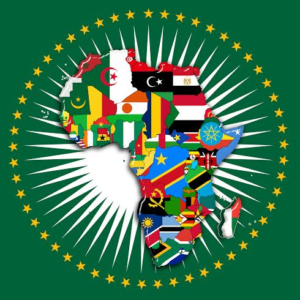Staff Reporter
Zimbabwe has launched an international diplomatic campaign to secure a non-permanent seat on the United Nations Security Council (UNSC) following the endorsement of its bid by the 55-member African Union (AU) earlier this year. Harare is vying for one of the two seats allocated for the African group of nations, which will be contested in 2026.
If successful, Zimbabwe will serve on the UNSC from 2027 to 2028, providing the country with an opportunity to shape and influence global affairs on one of the world's most important platforms for maintaining international peace and security.
The African Union’s endorsement of Zimbabwe as its candidate for the UNSC seat came during the Ordinary Session of the AU Heads of State and Government Summit held earlier this year. This backing is a significant step in Zimbabwe's bid, as it reflects regional and continental support for the country's aspirations on the global stage. Zimbabwe previously served on the UNSC during two separate periods: from 1983 to 1984 and from 1991 to 1992.
In an interview with this publication, Minister of Foreign Affairs and International Trade, Ambassador Fredric Shava expressed optimism about Zimbabwe’s campaign, stating that the country has already garnered strong regional support.
"Zimbabwe has already received regional endorsement from SADC (Southern African Development Community) and at the continental level. The African Union endorsed Zimbabwe during the 37th Ordinary Session of the Heads of State and Government of the AU in February this year.
"All the 16 countries in the SADC have endorsed Zimbabwe, and we are now the African Union candidate. We are now taking our campaign outside Africa, and the results are encouraging,” he explained.
Minister Shava further mentioned that the AU would soon notify the United Nations of Zimbabwe's intention to run for the UNSC seat in 2026. This notification process aligns with the UN's electoral cycle, where the election for non-permanent seats will take place.
“Zimbabwe is bidding to be a non-permanent member of the United Nations Security Council for the period 2027 to 2028, whose elections are scheduled to take place in 2026.
Securing a seat on the UNSC would mark a significant achievement for Zimbabwe and is seen as a key component of the country’s ongoing engagement and re-engagement efforts with the international community. It would also highlight the progress made by the Second Republic in rebuilding international relationships and fostering cooperation with other nations,” he added.
Additionally, Minister Shava emphasized that a seat on the UNSC would not only allow Zimbabwe to contribute to the UN’s primary organ responsible for global peace and security but also provide a platform to set the agenda through the rotating presidency of the council.
“Zimbabwe, as a responsible member of the international community, has an obligation to contribute to international peace and security,” Minister noted.
International affairs expert Alfred Nedziva, echoed the same sentiments stating that a seat on the UNSC would elevate Zimbabwe’s international standing and enhance its diplomatic profile.
“It would demonstrate recognition and trust from the international community in Zimbabwe’s capacity to contribute effectively to global security matters,” he said.
Nedziva also pointed out that Zimbabwe’s previous terms on the UNSC in 1983-1984 and 1991-1992 have equipped the country with valuable experience in dealing with the responsibilities and dynamics associated with serving on this influential international body.
“This prior experience may contribute to Zimbabwe’s preparedness and ability to effectively engage with UNSC activities, should it secure the seat once again,” he said.
The UNSC is composed of 15 countries, including five permanent members—China, France, Russia, the United Kingdom, and the United States—who have veto power over any resolution. The remaining 10 non-permanent members are elected by the UN General Assembly, which consists of all 193 UN member states. Voting is conducted by secret ballot, and candidates must secure a two-thirds majority, or 128 votes, even if running uncontested.
Zimbabwe's previous tenure on the UNSC was marked by its strong advocacy for the principles of self-determination, democracy, and good governance. The country was also a leading voice in the fight against apartheid in South Africa and supported international efforts to isolate the apartheid regime.




